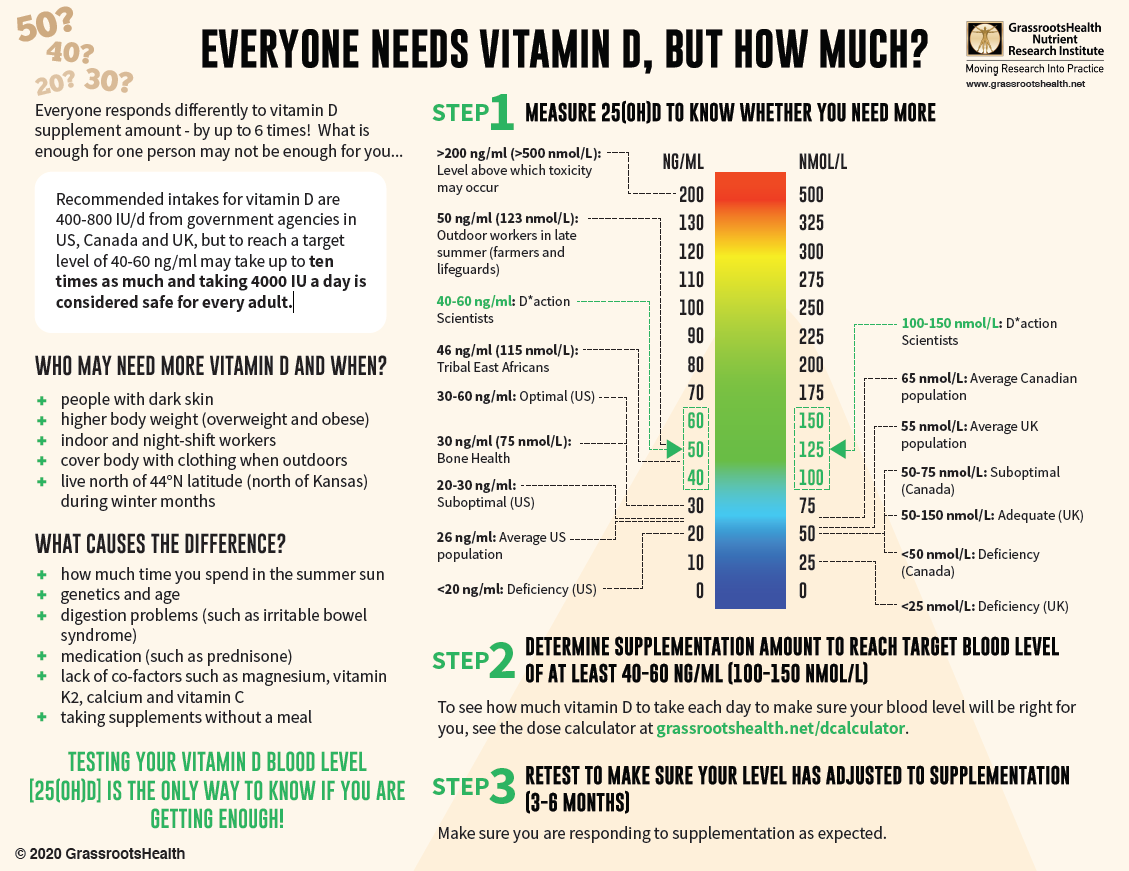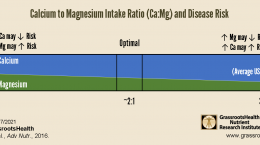Published on March 12, 2021
Video Friday: Dr. John Campbell reviews the scientific evidence to determine if supplementing with vitamin K2 with vitamin D is absolutely necessary
Key Points
- Vitamin K2 (called menaquinones) is mostly bacterial in origin, and is high in fermented foods such as sauerkraut, natto, and kimchi, high fat dairy from grass-fed cows, eggs, and animal organs; it is also synthesized by the bacteria in the gut. The main forms of vitamin K2 are MK4 and MK7.
- Vitamin K2 works synergistically with vitamin D, and both act as co-enzymes; one important role they have is to manage calcium metabolism and assimilation – getting calcium absorbed from the diet and into the bones, and working with proteins to prevent calcium from going into tissues
- At this point, no strong evidence proves that moderate amounts of vitamin D are harmful without an adequate intake of vitamin K; however, research is ongoing, and the picture might become clearer in the near future
It’s Video Friday! Today’s video addresses a frequently asked question among GrassrootsHealth participants and followers – “Do I need to take vitamin K2 with my vitamin D supplements?” This video is presented by Dr. John Campbell as he reviews the current published scientific research on vitamin K for an answer to this question.
Please take a moment to watch and share the video along with our detailed information below.
Watch the Video
After watching the video, be sure to make note of our added details below.
Should you take vitamin K2 with vitamin D?
Here is a quick summary of what this video discusses, along with additional information and details about vitamins D and K:
- There are two forms of vitamin K. Vitamin K1 is found in leafy greens and is essential for blood clotting. Vitamin K2 (called menaquinones) is mostly bacterial in origin, and is high in fermented foods such as sauerkraut, natto, and kimchi, high fat dairy from grass-fed cows, eggs, and animal organs. Vitamin K2 is also synthesized by the bacteria in the gut. The main forms of vitamin K2 are MK4 and MK7.
- Vitamin K is important to our health for many reasons (watch this video for more), making it important to get enough on a daily basis. There is not enough evidence yet for an RDA, but the “adequate intake” of vitamin K (both K1 and K2 combined) for adults is 90 micrograms for women and 120 micrograms for men. (There is no specific RDA or adequate intake set for vitamin K2.) Adequate intake of vitamin K2 can be achieved through diet alone.
- Vitamin K2 works synergistically with vitamin D, and both act as co-enzymes. One important role they have is to manage calcium metabolism and assimilation – getting calcium absorbed from the diet and into the bones, and working with proteins to prevent calcium from going into tissues. Vitamin K2 is important for directing calcium to the bone; without vitamin K2 it is thought that excess calcium gets deposited in plaque buildup in the arteries.
- Vitamin K2 is only one of several very important co-nutrients that work in conjunction with vitamin D. Other important nutrients to consider taking with vitamin D include magnesium, B vitamins, zinc, boron, and probiotics – most of which can be found in a healthy, well-rounded diet.
- Data from GrassrootsHealth shows that those taking supplemental vitamin K2 have a higher vitamin D level for any given vitamin D intake amount than those not taking supplemental vitamin K2. Specifically, 115% more supplemental vitamin D was needed for 50% of the population to achieve 40 ng/ml (100 nmol/L) for those not taking supplemental vitamin K2 compared to those who took 200 mcg/day or more.
- Vitamin D toxicity is very rare and difficult to achieve, especially at the levels recommended by our scientists’ panel. In actuality, the body is able to make about 10,000 – 25,000 IU of vitamin D from a single “proper dose” of sun exposure, and vitamin D levels seen among outdoor workers and hunter-gatherer tribes in Africa are in the range of 40-60 ng/ml (100-150 nmol/L). In none of these circumstances is supplemental vitamin K2 intake required to avoid toxicity from vitamin D.
- At this point, no strong evidence proves that moderate amounts of vitamin D are harmful without an adequate intake of vitamin K. However, research is ongoing, and the picture might become clearer in the near future.
- Studies covered in the video show a relationship between vitamin K2 and the prevention of osteoporosis, reduced risk of coronary heart disease, decreased bone loss, improved dental health (with a greater effect seen among those also supplementing with vitamin D) and even liver and prostate cancer.
How Are Your Vitamin D Levels Responding to Your Supplementation and Lifestyle Routine?
With almost 90% of the general population having vitamin D levels below the recommended 40-60 ng/ml (100-150 nmol/L), it is obvious that most people need more vitamin D. While most of us cannot achieve a vitamin D level of 40-60 ng/ml from sun alone, either due to our lifestyle, where we live, or other circumstances, we can certainly reach those levels with the right amount of supplementation.
Below is a guide for how much you might need, and who may need more. Your levels can be tested safely at home – order your home test kit today.
By joining the GrassrootsHealth projects, you are not only contributing valuable information to our study, but you are also gaining knowledge about how you could improve your own health through measuring and tracking your nutrient status, and educating yourself on how to improve it. Do you know what your status of vitamin D, omega-3s, and other essential nutrients is? Could your levels be improved? Test now to find out!








